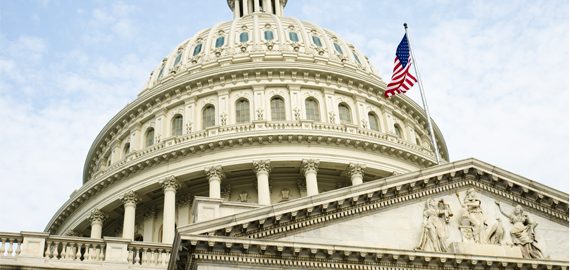WASHINGTON, D.C. – With millions of seniors facing decreased access to lab services as a result of cuts to nearly 600 lab tests, nearly 30 leading health organizations representing patients, seniors, laboratories and diagnostic manufacturers called on Congressional leaders to delay scheduled Medicare cuts to laboratory services and flawed reporting requirements taking effect in January 2022.
The groups, including the American Clinical Laboratory Association (ACLA), National Independent Laboratory Association (NILA), American Academy of Family Physicians, American Hospital Association, AdvaMedDx, Cancer Support Community, National Consumers League and key voices across the health system, urged Congress to take immediate action to address the looming harm to seniors’ access to care as a result of the flawed implementation of the Protecting Access to Medicare Act (PAMA).
Since 2018, PAMA has resulted in three years of 10 percent annual cuts to many of the most commonly ordered clinical laboratory tests (cumulatively a 27.1 percent cut to date), with up to 15 percent cuts for nearly 600 tests scheduled to resume on January 1st. Congress has twice responded in a bipartisan fashion to mitigate PAMA’s harmful impact – first through passage of the Laboratory Access for Beneficiaries (LAB) Act in 2019 and again by providing relief in the Coronavirus Aid, Relief and Economic Security (CARES) Act in 2020.
Delaying both the next round of cuts and the scheduled data reporting in 2022 will help ensure labs can continue to serve the millions of Americans who are managing diabetes, heart disease, cancer and other chronic conditions, while also maintaining a nimble diagnostic infrastructure to rapidly respond to evolving COVID-19 testing demands.
Highlights from the letter are included below:
- “As we approach the end of the second year of the COVID-19 pandemic, our nation’s clinical laboratories continue to work tirelessly on the front lines of the response. However, the flawed implementation of the Protecting Access to Medicare Act (PAMA) has resulted in drastic cuts to some of the most frequently ordered clinical laboratory tests. In just a few weeks, laboratories are scheduled to see cuts as large as 15 percent to some of the most common tests on their menus—basic clinical laboratory tests that are essential to the health and wellbeing of Americans.”
- “Reducing access to clinical laboratory services drives up the cost of care for patients and taxpayers. Millions of Americans who are managing diabetes, heart disease, liver disease, kidney disease, prostate and colon cancers, anemia, infections, opioid dependency, and countless other common diseases and conditions rely heavily on access to these routine lab tests to prevent costly interventions. Worse, these cuts will undermine the basic public health and clinical laboratory infrastructure that is needed to quickly respond to emerging and future public health threats.”
- “PAMA cuts have had a detrimental impact on clinical laboratory infrastructure, particularly labs who serve rural and underserved communities. In addition, laboratories are not immune to general market conditions. As supplies and labor costs continue to grow, laboratories struggle to maintain and hire essential personnel. Further cuts will continue to damage the nation’s laboratory infrastructure at a time when it is needed most.”
- “Without action by Congress, Medicare patients could lose access to essential laboratory services. Without ready access to lab tests, patients risk missed or delayed diagnoses, increased barriers to maintaining their health, and forgoing the opportunity to prevent even worse health outcomes or disease. In a medical age where technology is pushing health care closer to patients, the bureaucratic policies implemented through PAMA will drive care and the promise of better health further away from patients.”
- “We urge you to include a one-year delay to the 2022 Medicare CLFS cuts and private payer data reporting period in the continuing resolution that is currently being negotiated.”
Groups signing include: AdvaMedDx, American Academy of Family Physicians, American Association for Clinical Chemistry, American Association of Bioanalysts, ACLA, American Hospital Association, American Medical Group Association (AMGA), American Medical Technologists, American Society for Clinical Laboratory Science, American Society for Clinical Pathology, American Society for Microbiology, Association of Public Health Laboratories, Association for Molecular Pathology, Association of Public Health Laboratories, California Clinical Laboratory Association, Cancer Support Community, Caregiver Action Network, Caregiver Voices United, FORCE: Facing Our Risk of Cancer Empowerment, Infectious Diseases Society of America, Medical Group Management Association, National Association for the Support of Long Term Care (NASL), National Black Nurses Association, National Consumers League, National Independent Laboratory Association, New York State Clinical Laboratory Association, Personalized Medicine Coalition, Point of Care Testing Association and RetireSafe.
To view the letter, click here.
###
The American Clinical Laboratory Association (ACLA) is the national trade association representing leading laboratories that deliver essential diagnostic health information to patients and providers. ACLA members are at the forefront of driving diagnostic innovation to meet the country’s evolving health care needs and provide vital clinical laboratory tests that identify and prevent infectious, acute and chronic disease. ACLA works to advance the next generation of health care delivery through policies that expand access to lifesaving testing services.




